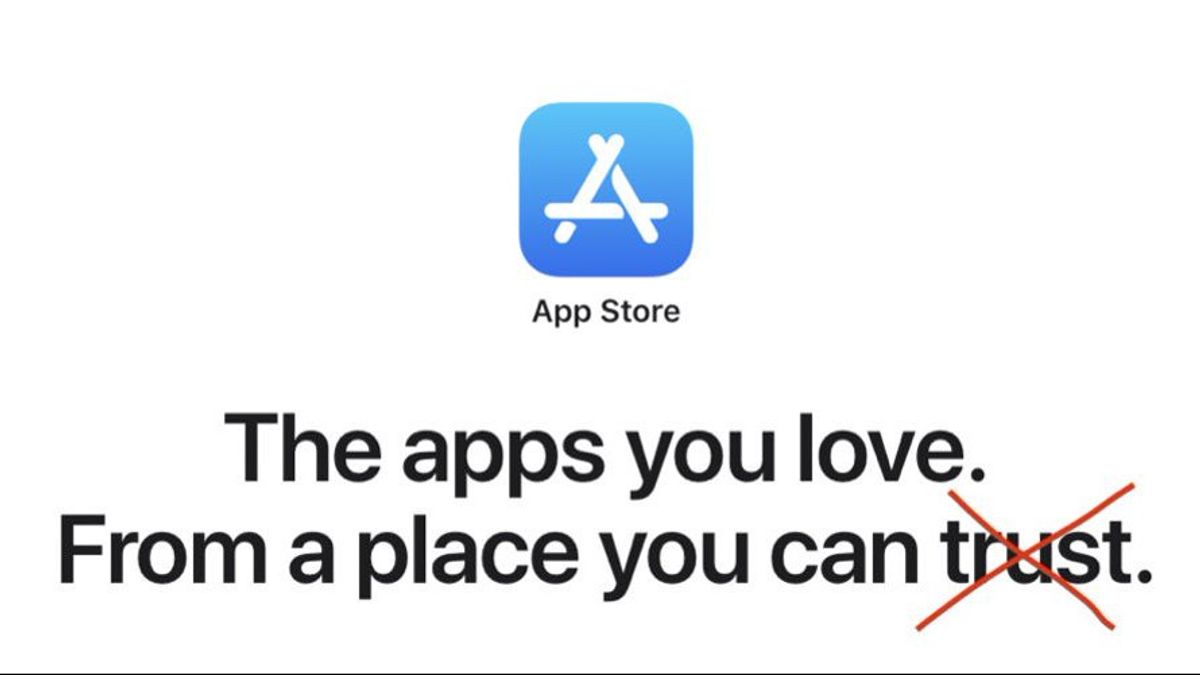JAKARTA - App Store developer and critic Kosta Eleftheriou has settled his lawsuit with Apple. The lawsuit, filed in March 2021, argued that Apple made it difficult for him to sell his app, Flicktype, on the App Store, after they lost interest in acquiring the technology.
The lawsuit alleges that Apple has used its monopoly power as an iPhone maker and as a company responsible for the App Store for "destroying" developers competing with it through "exploitative costs and selective apps from blurry and unreasonable boundaries."
The Verge reported that Eleftheriou also accused Apple of not doing much to stem the wave of fraudulent apps from impersonators who deceived potential users of its app, a swipe-based keyboard for Apple Watch.
The lawsuit was dismissed at the request of Eleftheriou's company, Kpaw, earlier this summer. Apple did not immediately respond to The Verge's request for comment on the settlement.
In an interview with The Verge, Eleftheriou said he could not comment on the settlement or feelings about it. However, he could offer some advice on what Apple could do to improve the App Store going forward.
He said that most of the advice his partner, Sean left, last year in his article "Eights are things Apple can do to prove they really care about App Store users" still on the table, and that would be the start.
From that list, which includes collecting App Review teams, ensuring the best-selling app rises and rises, and automatically returning the money of the deceived people, Apple has actually made moves on two items since Eleftheriou filed a lawsuit.
First, it restores the reporting button, which can help people who find apps that are clearly scammed. It also makes changes to the automatic extension subscription system - which Sean and Eleftheriou suggest should be removed, with users being asked to update each time the payment is due.
Now, Apple will let subscriptions update automatically despite a slight price increase.
Eleftheriou also suggested that Apple could be more transparent to the public about why the app was removed. He says that when you visit the App Store URL for apps that are no longer in store, it will tell you why it was deleted, whether it's because the developer deleted it himself, or because it violates some of the rules such as about fake reviews.
Eleftheriou is known to have discovered and pointed out a horrific scam in the App Store, and he said that this kind of move would help the public figure out how much scam is going on in stores, and how to get a lot removed.
While he doesn't think Apple will release its own statistics, he says that a public page that says why apps are removed can be mined for data from companies that
monitoring the App Store, providing a rough picture of how common various problems are.
As users, such information will tell you how careful they are while browsing the app. And while at the first blush it doesn't seem to be much benefit to Apple, it can help the company prove that it is getting better at managing the App Store. When the threat of antitrust regulation increases, especially around Apple's role as the owner of the platform and the company that controls the store, it can be a very valuable thing.
The English, Chinese, Japanese, Arabic, and French versions are automatically generated by the AI. So there may still be inaccuracies in translating, please always see Indonesian as our main language. (system supported by DigitalSiber.id)













